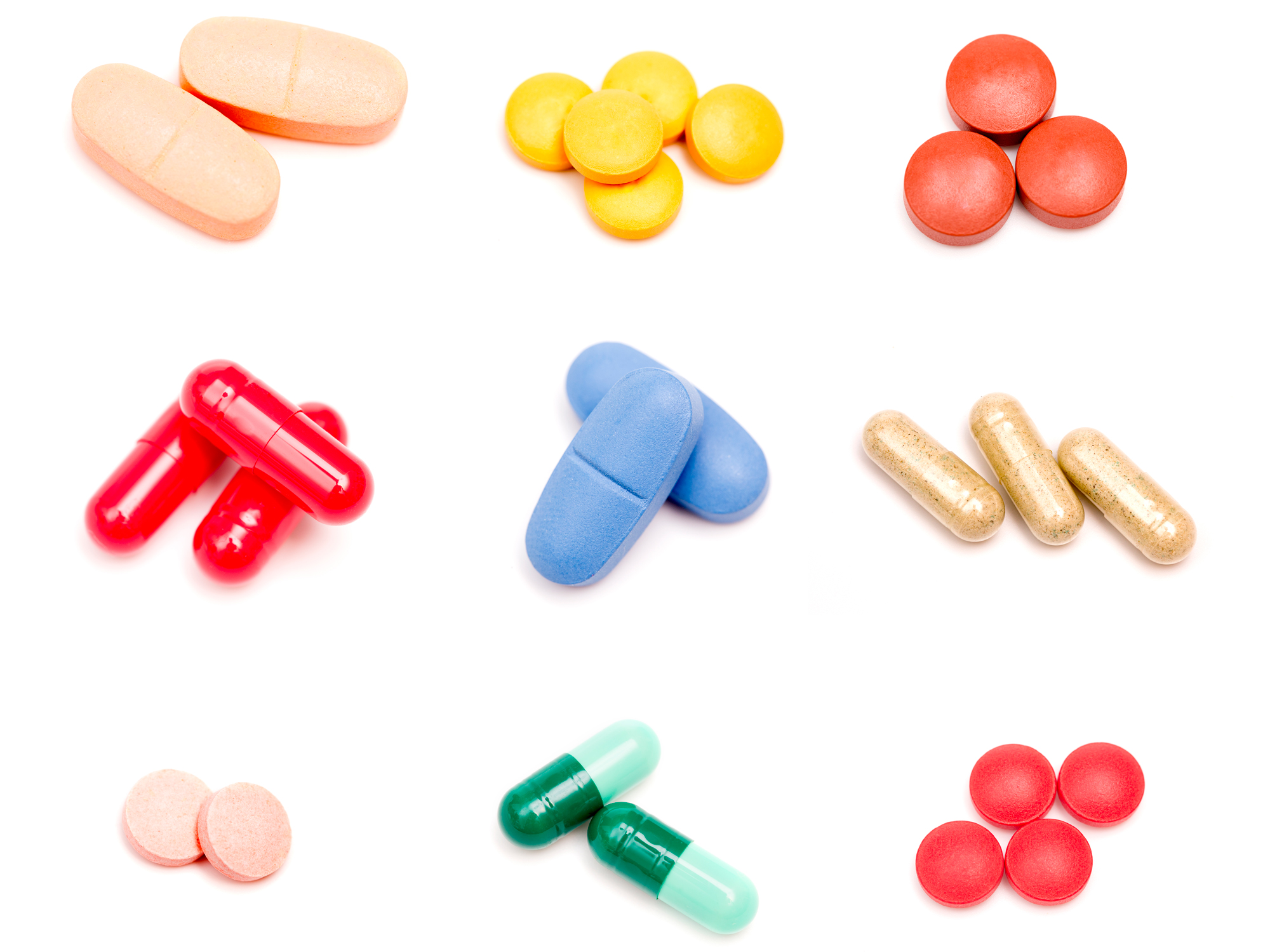Get Easy Health Digest™ in your inbox and don’t miss a thing when you subscribe today. Plus, get the free bonus report, Mother Nature’s Tips, Tricks and Remedies for Cholesterol, Blood Pressure & Blood Sugar as my way of saying welcome to the community!
9 Antibiotic alternatives you need to have on hand

The issue of antibiotic resistance should worry every single human being on this planet. So if you believe finding effective antibiotic alternatives is only for those who live a 100% natural lifestyle (running marathons, growing their own food, and eating vegan) you’d be dangerously wrong…
Every person of every age living anywhere in the world must actively decrease their exposure to existing antibiotics drugs (using them only in cases of serious need). And utilize non-pharmaceutical options whenever possible.
It doesn’t matter who you are, antibiotic resistance is a big deal. And here’s why…
Antibiotic (or antimicrobial) resistance is when a bacteria, parasite, fungi, or virus survives the standard treatment to kill it. This makes the treatment ineffective, leaving the infection unresolved. And if these resistant microbes spread to others, they take their antibiotic resistance with them. If they multiply within the host, their offspring are also resistant.
The over-prescribed, over-used, and over-consumed (without your knowledge much of the time) antibiotics we have depended on since 1928 are slowly but surely beginning to fail.
So you see how the problem of these critical drugs not working affects all of us.
They save lives but have been so over-used for things that are trivial (or outright irresponsible – such as putting it in the food supply), that they’re starting not to work in life or death scenarios.
The bad news
To drive this point home, in their report on antimicrobial resistance, the World Health Organization (WHO) delivered an ominous warning: “Many of the medical breakthroughs of the last century could be lost through the spread of antimicrobial resistance. Previously curable infectious diseases may become untreatable and spread throughout the world. This has already started to happen.”
In a separate report, they list the diseases that have begun to resist standard treatments. Among them are malaria, tuberculosis, HIV, and influenza.
Right now, these “superbugs” are responsible for around 700,000 deaths per year worldwide. Experts agree that with the ease of travel and global trade, the cases of antimicrobial resistance, death, and outbreaks could surpass even cancer deaths by 2050. Shocking as it may seem, that’s a mere three decades.
The good news
Antibiotic alternatives have been around for millennia before penicillin was discovered.
Long before there were pharmaceutical antibiotics, there were foods and herbs that helped guard against infection and disease on a daily basis… and they worked. Many of these natural defenders are still in use today with holistic healers around the globe.
Instead of waiting until you get sick or find that drugs don’t work on whatever strain of virus or disease you have, you can start building up your immune system in advance (yes, right now).
These antibiotic alternative foods and herbs haven’t lost their ability to fight bacteria. Bacteria, parasites, viruses, and fungi do not become immune or resistant to them.
What worked then still works today.
These are known as “astringent” foods — they naturally cleanse your blood without harmful side effects or upsetting the delicate balance of good bacteria in your body. They’re inexpensive, completely natural, and widely available.
Top 9 natural antibiotics
- Garlic: Raw garlic when crushed or chewed contains a compound called allicin — which has similar properties to penicillin. This superfood member of the onion family is antibiotic, anti-inflammatory, anti-viral, anti-parasitic, anti-fungal, and antioxidant (mopping up free radicals that have been proven to cause cancer).
- Honey: Ancient Romans used honey on the battlefield to treat wounds and prevent infection. Civilizations all over the world continue to consider honey one of the best natural antibiotics, antimicrobials, anti-inflammatories, and antiseptics known to man after thousands of years. New Zealand’s Manuka honey has been proven to have the highest levels of antioxidants and curative powers.
- Cabbage: There are sulfur compounds found in cabbage — a member of the cruciferous family that includes broccoli and kale — that have been shown effective as cancer fighters. Naturally antibacterial, eating shredded raw cabbage in your salad, as a side dish in the form of slaw, or drinking fresh cabbage juice (with honey added to sweeten) is an excellent way to improve digestion, prevent disease, and even manage your weight!
- Grapefruit Seed Extract (GSE): The Journal of Alternative and Complementary Medicine published a study that found grapefruit seed extract (GSE) effective against more than 800 forms of viruses and bacteria, more than a hundred strains of fungus, and many parasites. High in many antioxidants, GSE boosts immunity, alkalizes the body naturally, and aids in digestion by improving your beneficial gut flora.
- Raw Apple Cider Vinegar (ACV): The far-reaching benefits of daily doses of apple cider vinegar (ACV) include antibiotic and antiseptic properties, naturally alkalizing your system, and can aid you in everything from managing your weight to lowering cholesterol and your risk of cancer. A chemical-free astringent, ACV can be used topically to disinfect and sterilize.
- Extra Virgin Coconut Oil: There is not enough that can be said for the benefits of coconut oil. It has naturally occurring anti-fungal and anti-microbial properties and is packed with antioxidants you can’t find anywhere else in nature. Use it to boost your immune system, balance thyroid, cholesterol, and blood sugar levels, and even improve brain function. Safe to use internally and externally, coconut oil is one of the most versatile and unique gifts from Mother Nature.
- Echinacea: With similar effects to garlic, Echinacea is well tolerated and able to stimulate the immune system by naturally boosting infection fighters in your bloodstream. Native to North America, Echinacea has been used for centuries in tribal medicine to treat pain and sickness.
- Fermented Foods: Probiotics are one of the most incredible discoveries in the last decade. They work to boost and preserve the natural gut flora (good bacteria) found in your digestive system. Research has proven that a balanced gut is one of the keys to overall wellness and cancer prevention. These good bacteria are so critical to your health that doctors now recommend a probiotic while their patients are on prescription antibiotics.
- Oil of Oregano: Oil of oregano is considered anti-microbial, antibacterial, anti-parasitic, anti-viral, and anti-fungal. It can be used internally and externally in the treatment of wounds, respiratory problems, digestive upset, and even the common cold. Packed with antioxidants known as phenols and flavonoids, it heals but also strengthens your immune system. The natural antibiotic properties of many herbs are only now being analyzed and confirmed by scientists around the world.
Prescribed antibiotics kill all bacteria – the good and the bad – leaving your body stripped of its natural ability to fight infection and ward off illness.
You are designed to heal yourself in most cases. By adding these natural food medicines to your life, you can actively work to keep your body healthy and in balance.
These antibiotic alternatives aren’t for everyone. Research and discover the right foods that work for your life. Some are more of a risk than others…but so are prescription drugs. Read your labels and if you’re allergic, don’t include that food item! That’s counterproductive!
Editor’s note: Did you know that when you take your body from acid to alkaline you can boost your energy, lose weight, soothe digestion, avoid illness and achieve wellness? Click here to discover The Alkaline Secret to Ultimate Vitality and revive your life today!
Sources:
- NCBI: A Brief History of the Antibiotic Era: Lessons Learned and Challenges for the Future
- World Health Organization: 10 facts on antimicrobial resistance
- World Health Organization: Antimicrobial resistance
- BBC: Superbugs to kill ‘more than cancer’ by 2050













